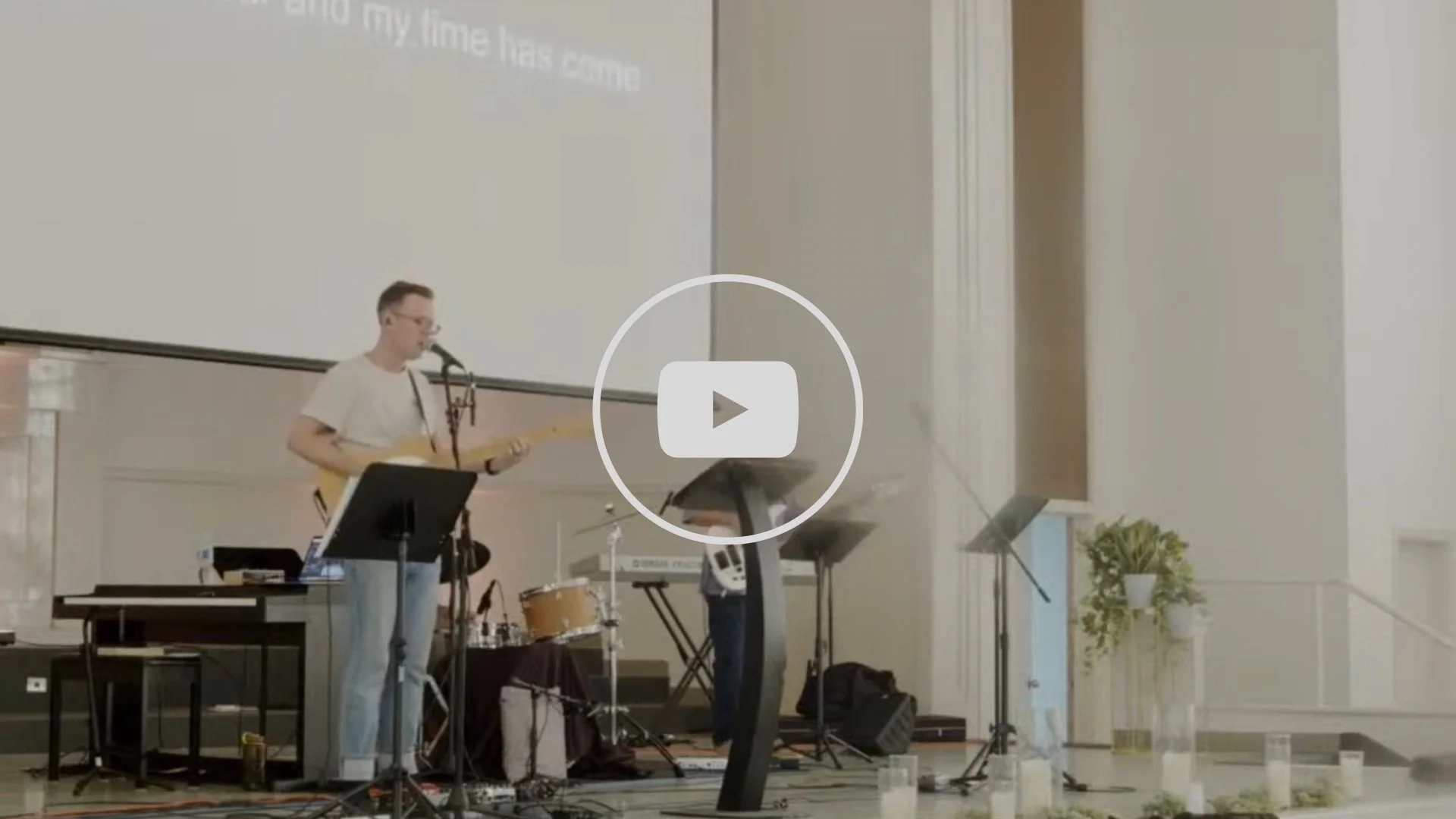Some passages in the Bible require a lot of unpacking. This is not one of them. Psalm 139 is straightforward and clear, allowing us to spend more time pondering than analyzing and meditating rather than discerning.
For the past few weeks, we’ve mentioned three terms describing God: omnipresent, omnipotent, and omniscient. Today, we will unpack those doctrines in greater detail. However, we will do so with a practical lens rather than an abstract theological lens. In doing so, we will gaze upon the glorious truth that no one knows you better than God.
Let’s dive in.
“[1] O LORD, you have searched me and known me!
[2] You know when I sit down and when I rise up;
you discern my thoughts from afar.
[3] You search out my path and my lying down
and are acquainted with all my ways.
[4] Even before a word is on my tongue,
behold, O LORD, you know it altogether.
[5] You hem me in, behind and before,
and lay your hand upon me.
[6] Such knowledge is too wonderful for me;
it is high; I cannot attain it.”
This Psalm starts with the declaration that God searches and knows us. The term search can imply a desire to obtain something one lacks. If, for example, I can’t find my keys, I will search until I find them.
However, the term “search” here isn’t intended to highlight a lack of information, as if God is looking for something he doesn’t already possess. God is all-knowing; he doesn’t lack any bit of information. Instead, the term ‘search’ is intended to highlight God’s careful concern for the deepest parts of our being. He has “searched me and knows me,” meaning there is no crevice of your heart or fiber of your being that God is unaware of. The parts of our being that we aren’t even willing to go, God has gone. No one knows you better than God.
Perhaps when we consider the doctrine of God’s omniscience, we do so abstractly. We think of God knowing everything about science, matter, and history. But Psalm 139 forces us to consider this doctrine through a personal lens. God doesn’t simply know everything about the world; he knows everything about you. God knows you better than you know you. He knows your actions. He knows when you’re sitting down and resting. He knows when you’re standing up and working. He knows your thoughts, carefully watching and observing them from afar. He knows every word you’ve ever spoken, even before a word is on your tongue. He hems you in, “behind and before you,” meaning you are entirely under his control and power.
This reality can be terrifying and beautiful. And the terror we feel from these verses can lead to joy.
We all feel the temptation to become hyper-focused on works performed in the light while diminishing works done in the darkness. We say things like, “I can’t believe you just said that,” whenever we think the same thing. But God knows what’s going on deep within your heart. He’s searched your innermost being. He’s acquainted with your thoughts, and he knows your words before they’re ever on your tongue. You may persuade others to believe you’re someone you’re not, but God sees through the facade. He knows you better than you know you.
That can be terrifying because we all fear being fully known and not fully loved. But the Bible shows us how God, who knows us fully, also loves us fully. He loves us enough to send his Son to the cross so we might have life through him. And the God who knows us best has given us the Scriptures to guide and lead us toward righteous living. Therefore, the Bible shouldn’t be seen as something that’s at odds with us. It should be seen as something that leads to our good and his glory.
No one knows us better than God. The only right response is to stand in awe of God and worship him, joining David in saying, “Such knowledge is too wonderful for me; it is high; I cannot attain it.”
Not only is God omniscient, but he is also omnipresent. There is nowhere God is not.
Look at verses 7-12,
“[7] Where shall I go from your Spirit?
Or where shall I flee from your presence?
[8] If I ascend to heaven, you are there!
If I make my bed in Sheol, you are there!
[9] If I take the wings of the morning
and dwell in the uttermost parts of the sea,
[10] even there your hand shall lead me,
and your right hand shall hold me.
[11] If I say, “Surely the darkness shall cover me,
and the light about me be night,”
[12] even the darkness is not dark to you;
the night is bright as the day,
for darkness is as light with you.”
There’s no way to escape the presence of God. You can go to the highest point in heaven or the lowest point in Sheol, and God will be there. You can go into the depths of the sea, and God will be there, holding your hand and leading you. God is the creator of night vision goggles; darkness cannot hide you from his sight. To God, the night is as bright as day.
Again, this truth can be terrifying and edifying.
God is looking over your shoulder as you search those websites. God is in the room with you as you gossip and slander your neighbor. God is watching you as you lie on your taxes. You think you can hide from God, but you can’t. You cannot flee from his presence. You cannot hide from the one whose darkness is as light.
This truth can also be water to our soul this morning. The wind of life will lead us all to various places this week, but we don’t journey there alone. God is with you in the darkroom of your house as you lie awake, wondering if anyone loves you. God is with you in the hospital bed as you wonder if there’s a cure for your illness. God is with you in the courtroom as you sit there anxiously, wondering if justice will ever be done. God is with you on vacation, offering you the rest you need to recharge your soul. God is with you when you get the phone call of a loved one passing away. The God who is omnipresent is with you today. There is nowhere that he is not.
But God is not only omnipresent but also omnipotent. He possesses all power. Again, the temptation is to think about this truth abstractly from the perspective of moons and stars. However, David gives us a practical lens through which to view this doctrine.
Look at verses 13-16,
“[13] For you formed my inward parts;
you knitted me together in my mother’s womb.
[14] I praise you, for I am fearfully and wonderfully made.
Wonderful are your works;
my soul knows it very well.
[15] My frame was not hidden from you,
when I was being made in secret,
intricately woven in the depths of the earth.
[16] Your eyes saw my unformed substance;
in your book were written, every one of them,
the days that were formed for me,
when as yet there was none of them.”
The all-powerful God of the universe formed your inward parts. God made me for a purpose. He knitted you together in your mother’s womb. You were fearfully and wonderfully made. Your frame was not hidden from God when you were made in secret. You were intricately woven in the depths of the earth. (This phrase seems strange, but I believe he’s alluding to the reality that there are aspects of our formation that will always remain unseen and mysterious to man. God sees that which remains unnoticed by man. No one is capable of truly seeing how a baby receives life. That will always remain a mystery. But it’s not a mystery to God.) Like an elderly woman knitting in her rocking chair, you were distinctly and intricately woven together by God for his glory and purpose. He knows your life's intricate and delicate details, down to the minutes and hours of your life.
You may hear this today and chuckle, thinking, “God skipped over me in the fearfully and wonderfully made department. I’m dreadfully and awfully made.” Perhaps you’ve been diagnosed with a particular type of disability, which has caused you to feel less significant than everyone else. If that’s you, I’m here to remind you of the words in Psalm 139. God’s works are wonderful, and you are a part of that masterpiece. In John 9, you find Jesus passing by a blind man, which leads Jesus’ disciples to ask him, “Rabbi, who sinned, this man or his parents, that he was born blind?” Their question assumes the blind man was created less significantly because of someone’s sin. But, Jesus responds, “It was not that this man sinned, or his parents, but that the works of God might be displayed in him.”
Church, the enemy will whisper in the night, “You are worthless, and no one wants you.” But, while the enemy whispers, God shouts, “I formed you for a glorious purpose.” Therefore, even with our ailments, we can shout,“Wonderful are your works; my soul knows it very well.”
As we continue to read, David shouts in verse 17,“How precious to me are your thoughts, O God! How vast is the sum of them! If I would count them, they are more than the sand. I am awake, and I am still with you.” Here, David revisits the concept of thoughts, but this time, God’s thoughts are the focal point instead of our thoughts. The thoughts of God outnumber the grains of sand on the planet. Yet, this unknowable, vast, and great God of the universe, who is far greater than us, is still with us.
Then David concludes by saying,
“[19] Oh that you would slay the wicked, O God!
O men of blood, depart from me!
[20] They speak against you with malicious intent;
your enemies take your name in vain.
[21] Do I not hate those who hate you, O LORD?
And do I not loathe those who rise up against you?
[22] I hate them with complete hatred;
I count them my enemies.
[23] Search me, O God, and know my heart!
Try me and know my thoughts!
[24] And see if there be any grievous way in me,
and lead me in the way everlasting!”
Given the context, we can conclude that the wicked are coming against David unjustly. In doing so, they speak against the LORD maliciously— the wicked loath God. And with a heart full of hate, they’re rising up against God. Once again, David cries out for God to act in righteous judgment against the wicked, “God, do not delay in bringing judgment against the wicked.”
David allows God to see his honest and raw emotions toward the wicked—“I hate them with complete hatred; I count them my enemies.” Church, God is not afraid of your honesty; he welcomes it. God is not afraid of your honest prayers. If God knows your innermost thoughts, he’s not afraid of you telling him what you feel. Here, David is honest with the LORD. And in this honest confession, we see his disdain toward the wicked.
We will spend more time unpacking this next week. But, for now, the takeaway I want to pull from this is this: It is good to hate sin. We must hate sin. And it’s good to despise the sin of others. But, before we ever concern ourselves with the sin of others, we must first concern ourselves with our own sin. This Psalm starts with an acknowledgment of God knowing every aspect of David’s heart. It ends with David laying down the keys to his heart at the feet of the LORD, saying, “Search me, O God, and know my heart! Try me and know my thoughts! And see if there be any grievous way in me, and lead me in the way of everlasting!”
Some of us have been deeply wounded by others, and hatred has filled our hearts. And we’re holding tight to that hatred today. I’m here to tell you today that a Godly hatred never leads to wrath. It never leads to bitterness. It never leads to withholding blessings from others. If our enemy is hungry, we feed him. If our enemy is thirsty, we give them something to drink. Godly hatred rests in the heart of one who is always willing to repent. Ungodly hatred, however, leads to wrath. It leads to bitterness. It leads to all sorts of evil. And it rests in the hearts of those who are unwilling to repent.







































